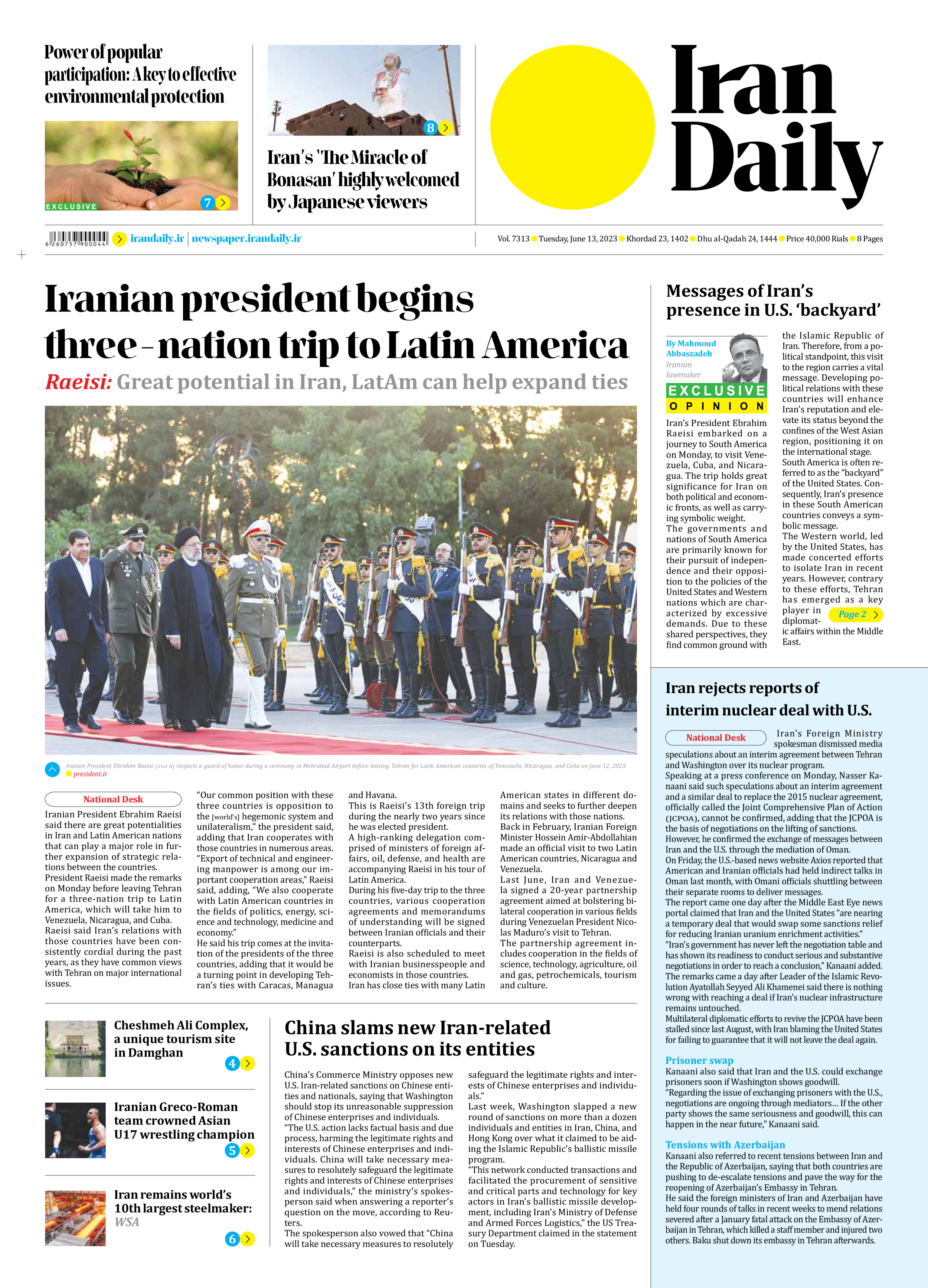
Messages of Iran’s presence in U.S. ‘backyard’
By Mahmoud Abbaszadeh
Iranian lawmaker
Iran’s President Ebrahim Raeisi embarked on a journey to South America on Monday, to visit Venezuela, Cuba, and Nicaragua. The trip holds great significance for Iran on both political and economic fronts, as well as carrying symbolic weight.
The governments and nations of South America are primarily known for their pursuit of independence and their opposition to the policies of the United States and Western nations which are characterized by excessive demands. Due to these shared perspectives, they find common ground with the Islamic Republic of Iran. Therefore, from a political standpoint, this visit to the region carries a vital message. Developing political relations with these countries will enhance Iran’s reputation and elevate its status beyond the confines of the West Asian region, positioning it on the international stage.
South America is often referred to as the “backyard” of the United States. Consequently, Iran’s presence in these South American countries conveys a symbolic message.
The Western world, led by the United States, has made concerted efforts to isolate Iran in recent years. However, contrary to these efforts, Tehran has emerged as a key player in diplomatic affairs within the Middle East.
Iran’s diplomatic reach extends beyond its neighbors and the West Asian region, encompassing East Asia all the way to South America. The Iranian president’s visit to in the “backyard” of the United States, namely South America, holds a symbolic significance that underscores the futility of America’s attempts to isolate Tehran. Iran’s diplomatic endeavors have now reached the doorstep of the United States.
Raeisi’s trip holds economic significance for Iran as well. Venezuela, Cuba, and Nicaragua possess ample economic opportunities that can partially fulfill Iran’s needs. Naturally, these countries can serve as promising markets for Iranian goods. It is evident that these nations are inclined to cultivate relations with Tehran based on their national interests. This implies that Tehran also holds advantages for these three countries. Iran can extend assistance to South American nations in areas such as energy, technology exports, industries, and services. In essence, both Iran and the South American countries stand to benefit from the growth of their political and economic ties.
While President Raeisi’s government has prioritized its foreign policy toward neighboring and Eastern countries, this does not indicate indifference toward opportunities and the potential for establishing better relations with other regions across the globe. Whenever the interests of the Islamic Republic of Iran demand it, the government readily seizes these opportunities to help overcome economic challenges. South America is one such opportunity that can serve as a gateway to Iran’s economy, and the government has demonstrated its attentiveness to this prospect.







